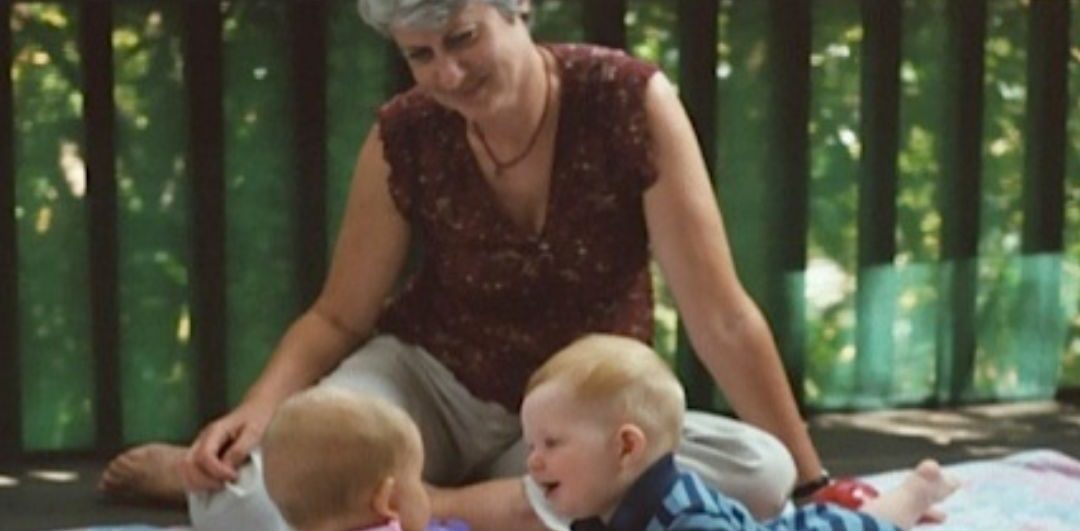Talking to your baby has benefits for both baby and parent
“I believe in speaking to your baby because that’s how we human beings communicate. Why not talk to your baby as you would to your friend or spouse?” — Magda Gerber in Your Self-Confident Baby
How to Do It:
- Tell your child what you are going to do before you do it, e.g. “I’m going to pick you up now.”
- Talk to your child in simple, direct sentences, as though they understands.
- Explain what is happening (e.g. “because it’s time to get dressed.”)
- Wait for a response. Babies need time to process what we are saying. They are not as fast as we are, even when they are toddlers. RIE Associate Diana Suskind coined the phrase “tarry time” to explain the time infants need to process.
- Look for a response. For a young baby, it may be a subtle change of expression or movement that indicates interest and readiness. For an older baby, it may be a more obvious responsive gesture, like holding their hands up.
- Then proceed slowly, making the infant a part of the process.
Why we do it:
- As Magda Gerber reminds us, talking to your baby is “pleasant and soothing to the baby and can be a relief for you to say how you feel and what you need.” You are “beginning a lifetime of [healthy] communication.” (Dear Parent)
- It also helps us from going on “auto-pilot” and keeps us present with what we are doing with our baby.
- When we act on an infant without telling them what is going to happen they are in effect being treated like an object. Our security and trust grows in others when they take the time to tell us what is going to happen (think of your last visit to the dentist or doctor)
- We don’t know when babies begin to understand language, but one day they will. When we slow down, tell them what we are going to do, wait, and observe we can watch the development of their understanding right before our very eyes! It is always an exciting moment.
- When we talk with young children it builds trust. Babies grow to anticipate what will happen next. This predictability builds security at all ages.
Magda Gerber, Dear Parent“For a long time it may feel as if it is only one-sided, but delightful surprises in your baby’s responsiveness will convince you they were putting together all your words, gestures and facial expressions all along.”
Ties to Principles:
- Respect is the basis of the Educaring® Approach.
- Involvement of the child in all care activities to allow the child to become an active participants rather than a passive recipient.
- Basic trust in the infant to be an initiator, an explorer, and self-learner.
What parents and carers say:
“I remember asking my young baby if she could lift her behind so I could remove her diaper. She was so little, I didn’t expect a response. Then one day, she looked right at me and did it. I couldn’t believe it!” — Jennifer
Adapted from Dear Parent by Magda Gerber
References:
Fernald, A., Zangl, R., Portillo, A.L., & Marchman, V. A. (2008). Looking while listening: Using eye movements to monitor spoken language comprehension by infants and young children. In Sekerina, I.A., Fernandez, E.M., & Clahsen, H. (Eds.) Developmental Psycholinguistics: On-line methods in children’s language processing.
Fernald, A. & Mazzie, C. (1991). Prosody and focus in speech to infants and adults. Developmental Psychology, 27, 209-221.
Fernald, A. (1989). Intonation and communicative intent in mother’s speech to infants: Is the melody the message? Child Development, 60, 1497-1510.
Gerber, M. (2002). Dear Parent: Caring for Infants with Respect – 2nd Edition, pp. 33-34. Resources for Infant Educarers: Los Angeles.
Weisleder, A., & Fernald, A. (2013). Talking to children matters: Early language experience strengthens processing and builds vocabulary. Psychological Science, 24(11), 2143-2152.

 Educaring® Practice: Choosing Play Objects
Educaring® Practice: Choosing Play Objects Educaring® Practice: Laying the Baby on Their Back
Educaring® Practice: Laying the Baby on Their Back Educaring® Practice: Responding to Crying
Educaring® Practice: Responding to Crying Educaring® Practice: Wants Nothing Time
Educaring® Practice: Wants Nothing Time